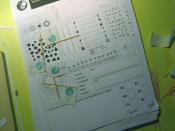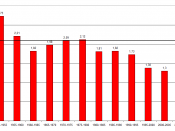Abstract
The prominent theme in today's society is the decreasing number of children born to Australian women. Most social literature is often based on the numbers which show that Australia is experiencing falling fertility rates and the delay of having children has risen.
Using the selected group of 6 women to do the questionnaire , the paper explores the link between declining fertility rate and how its is relevant with the focus of women on education and career. Furthermore the paper explains why women choose to focus on particular things in their life whether it is career, education or children and whether there is a link between chosen lifestyle and their satisfaction.
Overall we find support for the idea that changes in women's lives, such as the ability to gain an education, work and be financially independent is the major cause for the fertility decline and delay. However the paper looks at evidence about the happiness of these women, whether these changes benefit them positively or negatively.
In addition we find that the number of children they have might not be the actual amount they desired or planned, due to different factors.
Introduction
In the past fifty or so years the increased ability for tertiary education and opportunity for paid work has been the most comprehensive change for women. This significant change in their lives has brought along major change in the way they form their families.
Existing literature suggests the reason to why women are choosing to have less children later on in life, however it never been explains whether or not women are happy to put children last on their list after education and career. Demographically more women remain childless in their mid twenties than ever before in Australia, mainly because women have other priorities such as education...


